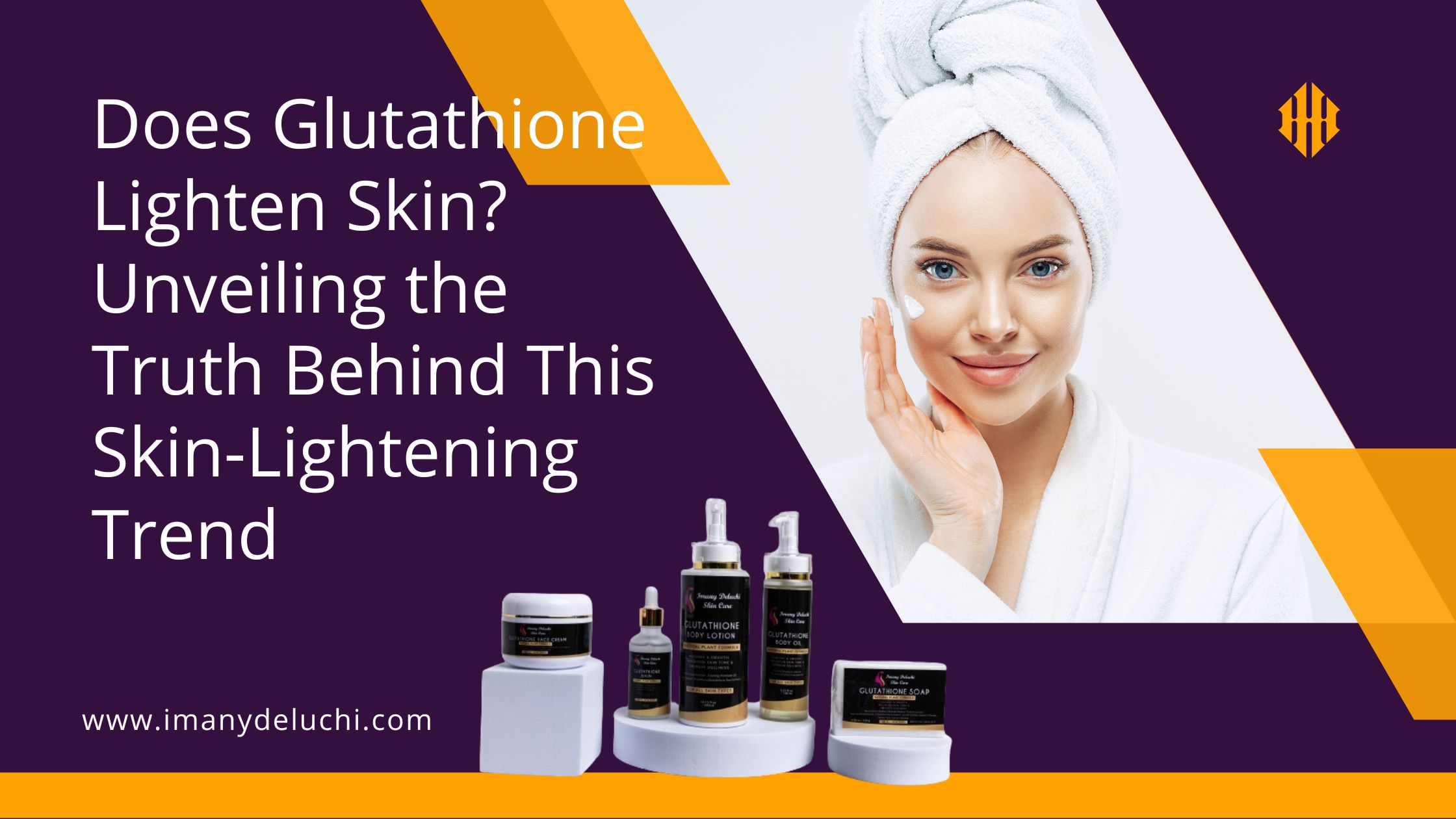Glutathione has gained significant attention as a skin-lightening agent, but does glutathione lighten skin? This question has sparked curiosity and debate. Let’s dive deep into the science and effectiveness of glutathione for skin lightening, examining the facts behind this popular trend.
How Does Glutathione Lighten Skin?
Tyrosinase is an enzyme involved in the formation of melanin, and glutathione is thought to be the cause of its skin-lightening properties. The pigment called melanin is what gives your skin, hair, and eyes their respective colors. Glutathione may lighten skin tone by lowering melanin synthesis. Furthermore, the antioxidant qualities of glutathione aid in shielding the skin from UV rays and other outside contaminants that can aggravate hyperpigmentation and uneven skin tone.
Scientific Evidence Supporting Glutathione for Skin Lightening
Several studies have explored the effects of glutathione on skin lightening:
- Oral Glutathione Supplements: A study published in the Journal of Clinical, Cosmetic, and Investigational Dermatology in 2017 found that oral glutathione supplements significantly reduced melanin indices in subjects, leading to lighter skin tones. Participants took 500 mg of glutathione daily for 4 weeks, resulting in noticeable skin lightening in most individuals.
- Topical Application: Research has shown that topical glutathione can also be effective in lightening skin, though results may vary based on formulation and concentration. A study in the Journal of Dermatological Science found that a topical glutathione formulation significantly reduced hyperpigmentation in participants over a 10-week period.
What is Glutathione?
Glutathione, which is made up of the amino acids cysteine, glutamine, and glycine, is a potent antioxidant that occurs naturally in the body. It is essential for cleansing the body, boosting immunity, and scavenging free radicals. Every cell has it, but the liver has the highest quantities of it as the liver is where hazardous compounds are detoxified. Additionally, glutathione plays a role in cellular functions such protein synthesis, enzyme activation, and DNA creation and repair.
Types of Glutathione Products
Oral Supplements
Oral glutathione supplements are widely available and convenient to use. However, their effectiveness can be influenced by the body’s ability to absorb and utilize the antioxidant. The bioavailability of oral glutathione is a topic of debate, with some studies suggesting that the body’s digestive processes may break down the compound before it can be effectively utilized. Some supplements contain extra substances like N-acetylcysteine or vitamin C to improve absorption.
Intravenous Glutathione
Intravenous Glutathione is injected intravenously (IV) into the bloodstream to maximize absorption. Although this approach is well-liked in certain nations, there may be greater expenses and hazards involved. IV glutathione treatments are often sought by those looking for quicker results, as the direct delivery method bypasses the digestive system.
Topical Glutathione
Topical products, such as creams and serums, deliver glutathione directly to the skin. They are often combined with other skin-benefiting ingredients to enhance their efficacy. Topical glutathione products are generally considered safe and can target specific areas of hyperpigmentation or uneven skin tone. The effectiveness of these products depends on factors such as concentration, formulation, and consistent use.
Glutathione Lightening Soaps
Glutathione lightening soaps are another popular option. They combine the antioxidant with exfoliating agents to promote skin renewal and brightening. These soaps are typically used as part of a daily skincare routine and can help to gradually lighten the skin over time. It is important to choose soaps with appropriate pH levels and additional moisturizing ingredients to avoid drying out the skin.
Is Glutathione Safe for Skin Lightening?
The safety of glutathione for skin lightening is a crucial concern. Generally, glutathione is considered safe when used appropriately. However, some potential side effects include:
- Allergic Reactions: Some individuals may experience allergic reactions to topical products, resulting in redness, itching, or swelling.
- Gastrointestinal Issues: Such as bloating or diarrhea in mild form might be a side effect.
- Risks of IV Glutathione: IV administration can pose risks such as infections, vein irritation, or adverse reactions if not done properly by a trained professional.
Can Glutathione Whiten Skin Permanently?
The results of glutathione for skin whitening are typically not permanent. Continuous use is often required to maintain the lighter skin tone. Discontinuation of glutathione can result in the gradual return of natural skin color as melanin production resumes. This means that individuals seeking long-term skin lightening effects need to commit to ongoing use of glutathione products.
How Long Does It Take to See Results?
Depending on the skin type and mode of intake, glutathione may take a different amount of time to have noticeable effects. It could take a few weeks or months for topical treatments and oral supplements to start showing results. Utilization consistency is essential to getting and keeping outcomes. For those opting for IV treatments, results may appear more quickly, often within a few weeks of regular sessions.
Also Read : Top 10 Benefits of Using Herbal Soaps for Healthy & Glowing Skin
FAQs
Does Glutathione Lighten Skin?
Yes, glutathione can lighten skin by inhibiting melanin production, resulting in a lighter skin tone over time.
Can Glutathione Whiten Skin?
Glutathione can whiten skin to an extent by reducing melanin levels, but the results are not permanent and require ongoing use to maintain.
Is Glutathione Safe for Skin Lightening?
Glutathione is generally safe for skin lightening when used appropriately. However, consult with a healthcare provider to ensure it’s suitable for you.
How Long Does It Take for Glutathione to Lighten Skin?
While results with oral or topical glutathione can vary, it can take several weeks to months to notice a noticeable whitening of the skin. IV therapies might yield quicker outcomes..
Conclusion
So, does glutathione lighten skin? The evidence suggests that it can, by reducing melanin production and promoting a lighter skin tone. Whether through oral supplements, IV treatments, topical products, or soaps, glutathione offers various options for those seeking skin lightening solutions. However, it’s essential to approach this trend with caution, prioritize safety, and consult with healthcare professionals to ensure the best outcomes.
For those interested in trying glutathione lighten skin soap, make sure to choose high-quality products from reputable sources to achieve the best results.

